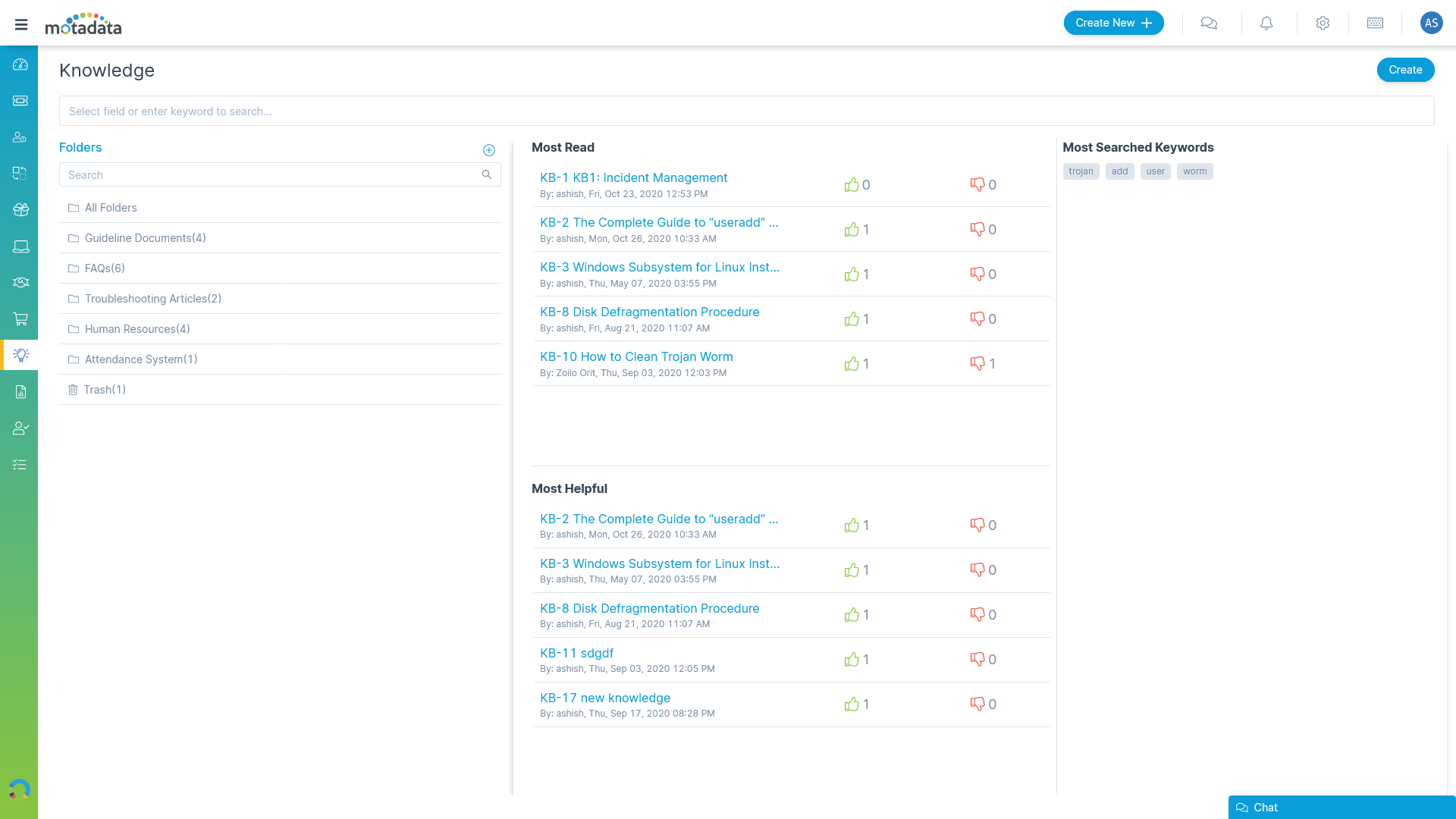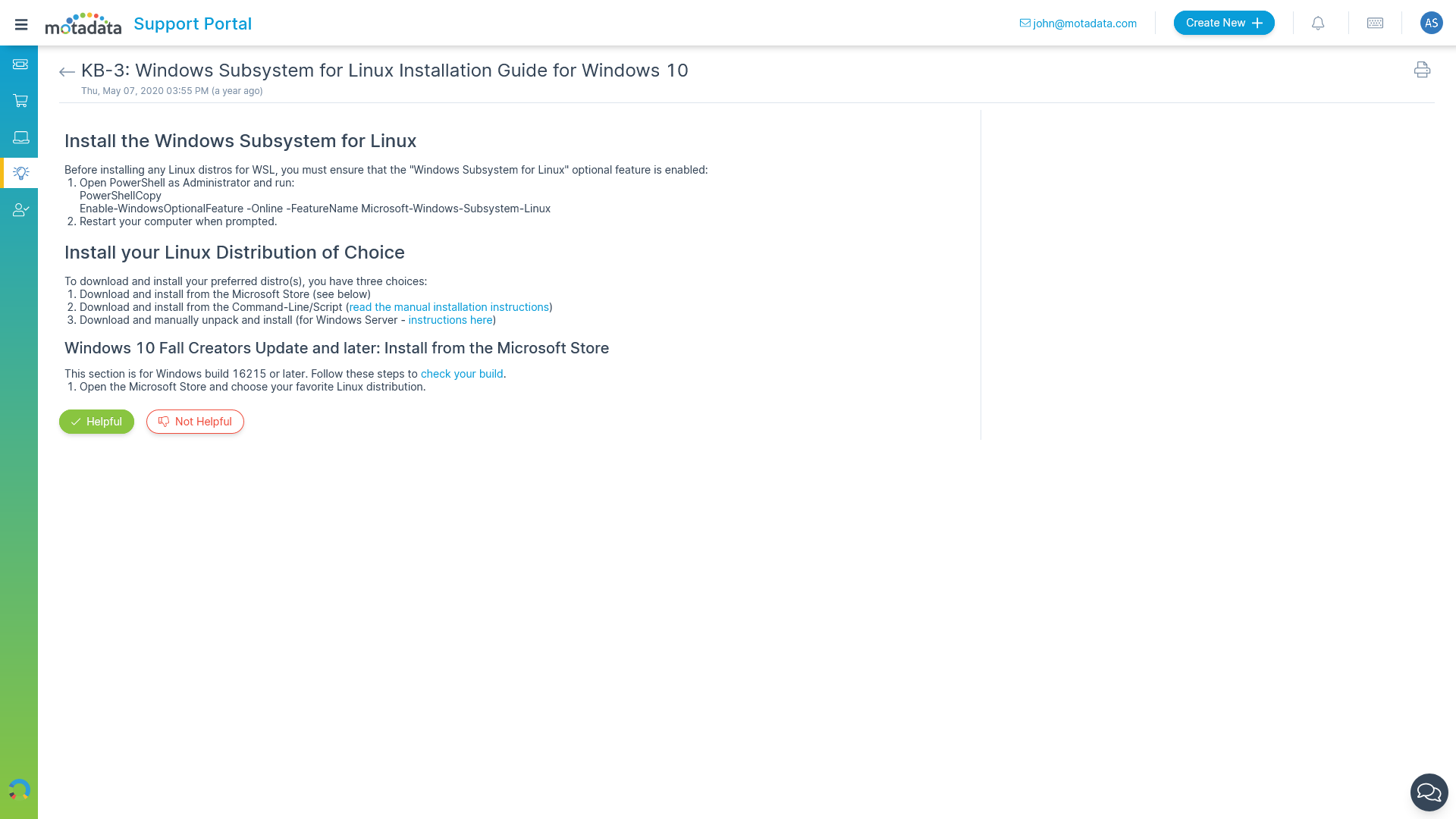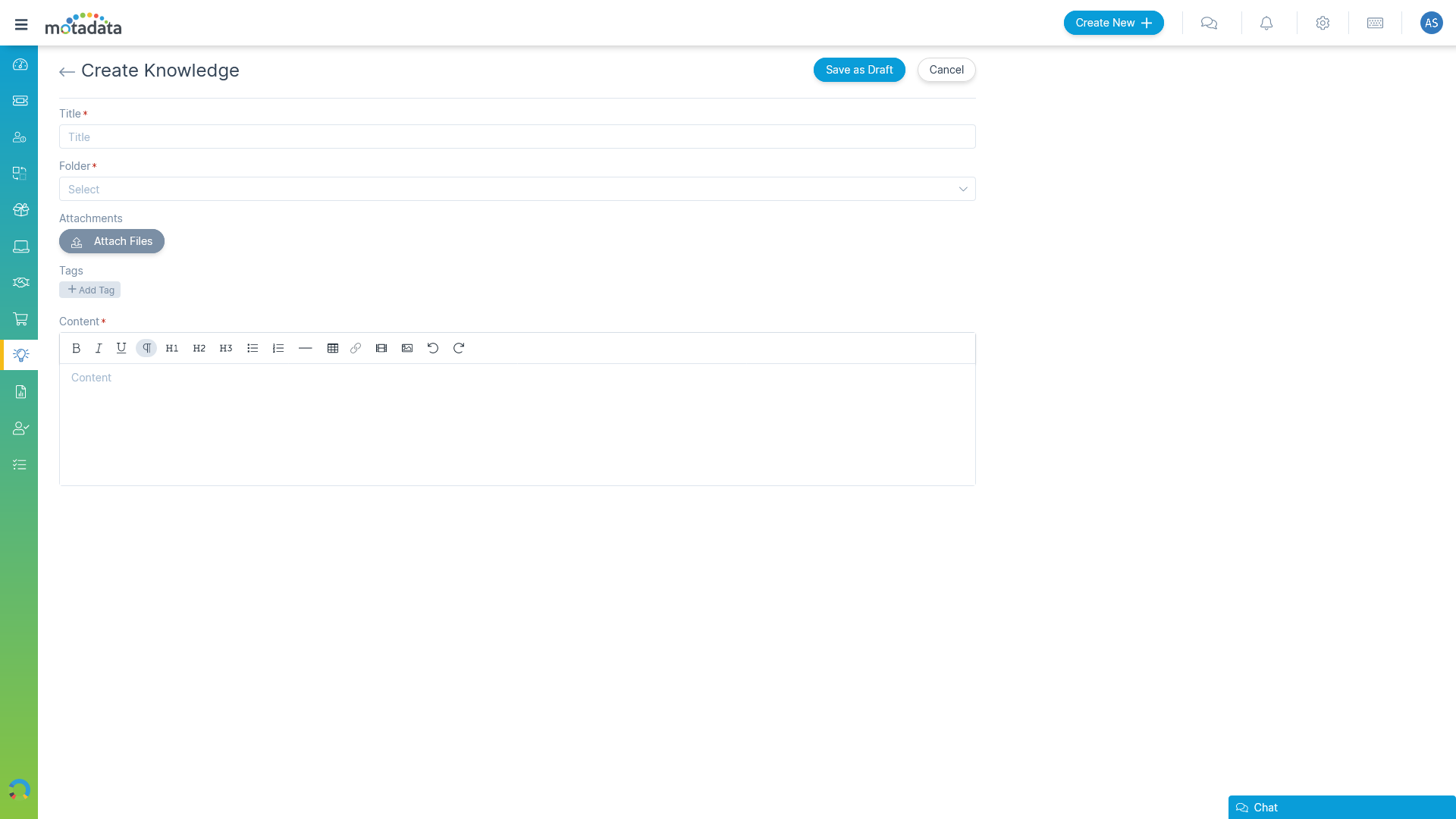Promote Self-Service and Empower Users with our Knowledge Base Software
Motadata ServiceOps ITIL Knowledge Management can help your Organization Gather Knowledge, Increase Accessibility, Improve Process Alignment, and Eliminate Redundancies.

Fast-track your Resolution Process with Knowledgebase
Create and share knowledge articles to offer solutions, workarounds, FAQs, etc. with your teams and users seamlessly.
- Modern WYSIWYG editor
- Role-based Access
- Configurable Topics to Organize Similar Content
Key Benefits
- Quicker Resolutions
- Reduced Operational Costs

Help Users Help Themselves with Self-Service Portal
Utilize a central body of information that provides know-how on resolving issues that have occurred before.
- Contextual Search
- AI-powered Smart Article Suggestion
- Content Feedback
Key Benefits
- Increased Customer Satisfaction
- Enhanced Operational Efficiency

Boost Technician Efficiency by Enabling Collaboration
Make collaboration between authors a breeze while creating articles or documenting solutions to known issues using sections.
- Stage Content as Draft
- Faster Troubleshooting
- Automatic Approval Mechanism
Key Benefits
- Improved Technician Productivity
- Consistent Operations
Improve Your
Service Operation By 30%
Other Features
Empower Users to find Solutions to Common Issues By Themselves and Reduce the Number of Incoming Tickets with our Knowledge Base Software.
Ebook
IT Service Desk, A Complete Guide
A Guide to Supercharge your IT Service Delivery.
Other ServiceOps Modules
Explore ServiceOps
IT Service Management Solution that is Easy to Use, Simple to Set Up, and has Everything you Need to Provide a Seamless IT Service Delivery Experience.
Try ServiceOps for 30 Days
Download our software free of cost for 30 days
Schedule Demo With Our Expert
Book a slot in our calendar and experience ServiceOps live.
Do You Have Any Questions? Please Ask, We Are Ready To Support
If your question is not listed here, please feel free to reach out.
A knowledge base is an online self-service repository of information for a particular product, subject, or service. Your knowledge management practice is built on a knowledge base. Knowledge management helps you to generate, curate, distribute, use, and manage knowledge throughout your organization.
Any contributor who is experienced in the relevant areas can typically add to and enhance the knowledge base. FAQs, manuals, runbooks, troubleshooting instructions, or any other information that your teams might want or need to know may be included in the knowledge base.
To generate knowledge from everyday activities and manage the generated knowledge, service desk teams utilize the data, information, knowledge, and wisdom (DIKW) framework for knowledge management. This framework demonstrates the journey of how data is transformed into information, knowledge, and finally, wisdom.
In the first step – data, subtle facts about incidents occurring in the organization are collected. In the next step – information, context is provided to the collected data. The following step – knowledge, involves collating the experience, knowledge, and judgments of knowledge managers, technicians, SMEs, or even end-users. Finally, data, information, and knowledge come together to produce wisdom which improves knowledge management. Dynamic planning, issue resolution, and strategic planning are all used for better decision-making.
The best practices for knowledge management include understanding the underlying problems and challenges before initiating or implementing a knowledge management program. Once the system is in place, knowledge should be made consumable and presented in a user-friendly manner with a consistent, standardized format to simplify searching for answers for the users.
Measuring the effectiveness of the knowledge management program can be challenging since the underlying operational procedures are planned, carried out, and then assessed using references created internally by the organization. So numerous alternative KPIs and references can be utilized instead. Finally, necessary processes are required to be developed to enable users to not only create and access knowledge but also to utilize it in their daily activities.
The knowledge management process is critical to any IT organization because it enables it to acquire relevant knowledge over time while decreasing the number of resources spent on rediscovering knowledge.
Knowledge management guarantees that information is accessible to all IT personnel and promotes a self-help service catalog approach, which saves time and money.
An effective knowledge management system unifies knowledge, encourages business continuity, and eradicates knowledge silos. It supports better decision-making at all levels and derives actual value from linked data via the DIKW structure. Moreover, it also reduces the expense of training for new service technicians.
